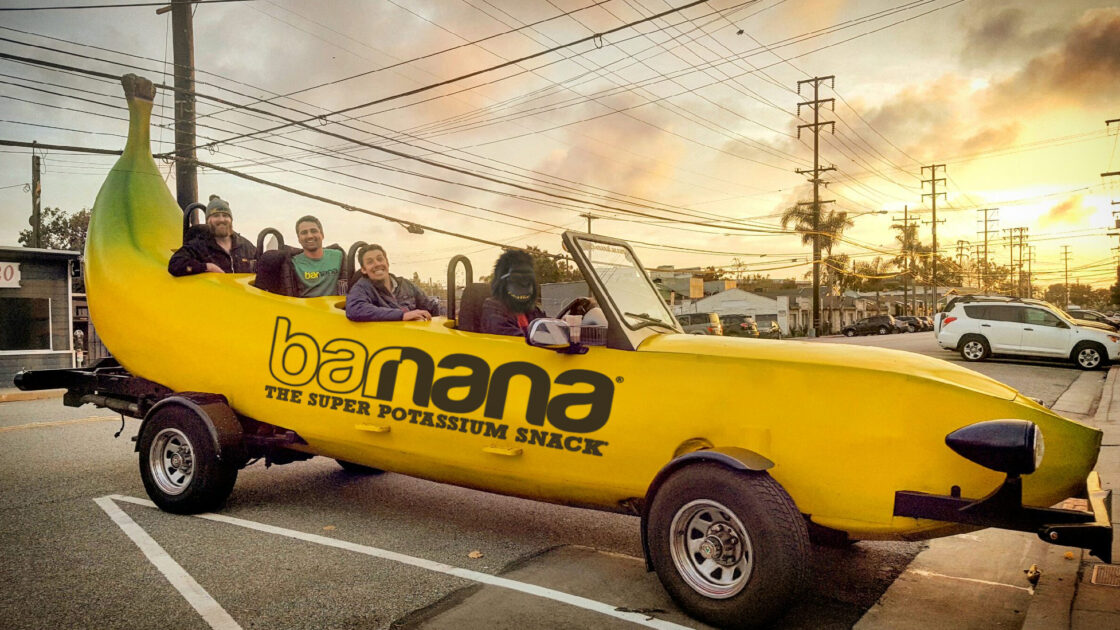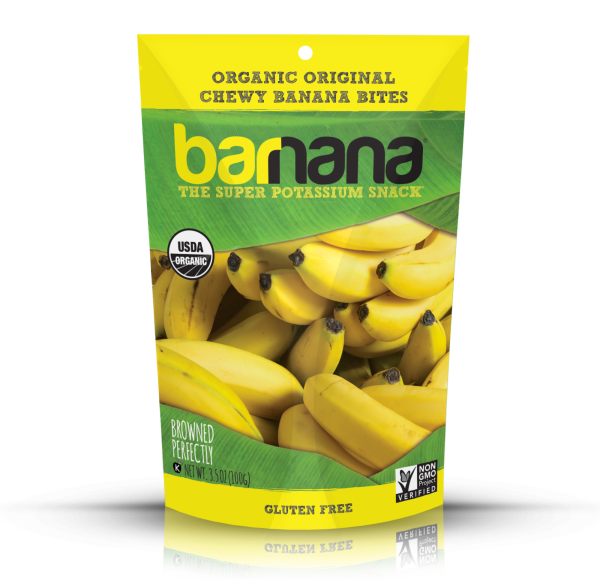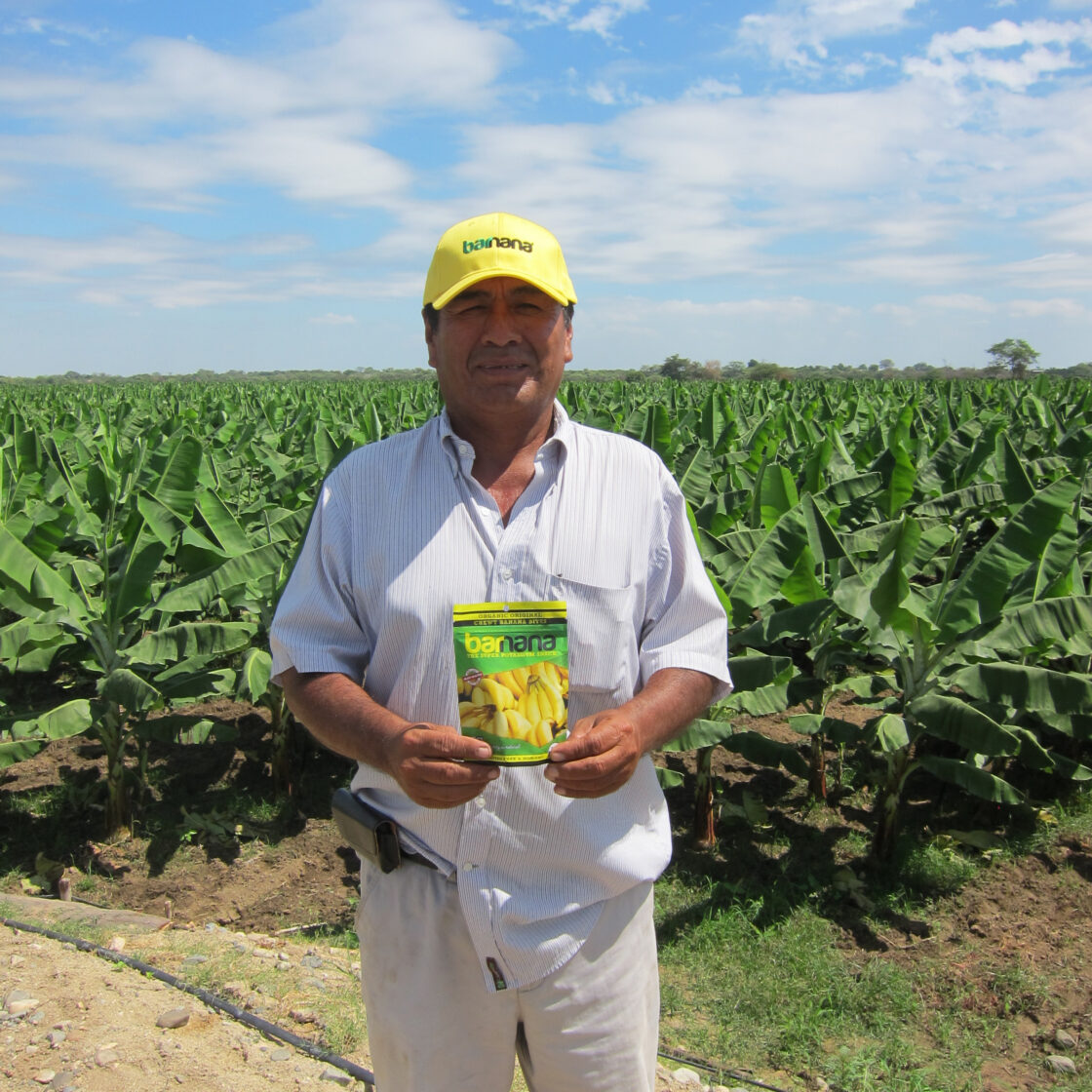Disrupting Food Waste and the Energy Bar Market with America’s Favorite Fruit: Meet Barnana

The energy and nutrition bar category was valued at more than $8 billion in 2016. What was once relegated to little more than a transportable necessary refuel option for athletes has taken over our daily lives. We turn to energy bars as frequent substitutes for breakfast or lunch, or when our only athletic feat of the day may be an outstretched arm to hold open the elevator door on the way up to our office. There are bars for every dietary preference, gender-specific bars, savory bars, and some pretty darn tasty homemade ones, too. But for Caue Suplicy, co-founder and CEO of Barnana, he’s betting on an unlikely energy bar category disruptor: the ubiquitous banana.
Naturally portable, fruits like bananas offer carbohydrates and potassium the body needs to fuel athletic and cognitive endeavors. But the naturally occurring fiber in fruit also mellows the sugar spike, preventing a crash and refuel cycle most of us are familiar with when we turn to refined carbohydrates or straight up sugar-filled junk to boost our energy. While scientists tinker with formulations for the “perfect” energy bar, Suplicy and Barnana co-founders Matt Clifford (COO), and Nik Ingersoll (CMO), are pretty convinced it may be a waste of energy—quite literally.
Raised in Curitiba in the South of Brazil, Suplicy grew up in a healthy household eating a mostly macrobiotic diet with no refined sugars allowed. Dried bananas, a popular treat in Brazil, were his main snack. When dried like apricots or plums, bananas become chewy in texture, sweeter, and provide a burst of natural energy without all the fillers and added junk in energy bars.

Suplicy’s healthy lifestyle led him into a world of athletics—he began competing in triathlons in 1995, moving to San Diego in 2001 to compete. He’d try all of the energy bars and gels on the market, “but every time I would go home to Brazil, I would bring back bags of the dried bananas,” he says, “they were just so good.”
And his racing friends would come to agree after he’d generously share them around; the only dried bananas they could find at stores though were the crispy dried bananas—delicious in their own way, but not as satisfying as the soft, chewy bananas from Brazil.
“I never thought about creating a business, says Suplicy. “Then I saw coconut water and acai [two major Brazilian exports to the U.S.] and I was stunned—why didn’t I think of that?”
Brazil has no shortage of nutritious or tasty food—the Amazon river feeds millions of acres of lush forest land where so many plants grow that scientists have yet to identify them all. Bananas have become a staple crop throughout the region (most notably in Ecuador). But the banana literally has a blighted production chain. Not only are diseases threatening banana plantations around the world, but picking and shipping unripe bananas to the U.S. just in time for them to be perfectly yellow before you put them in your cart is an arduous, dangerous, and expensive process, to say the least. It’s why many bananas sold in grocery stores are now Fair Trade certified, to help support the safety, fair pay, and health of banana plantation workers. Still, growers struggle to meet the demand for fresh bananas, and our obsession with gorgeous-looking produce leaves them facing major losses, too.
“I visited farms and after they harvest the bananas, they get sorted into piles. I realized there was a pile not being packed—those were the rejects, they don’t qualify to be exported,” Suplicy says. “But they looked perfect to me.”
Some farmers compost the rejected bananas, some feed them to animals, but many just throw them away and focus their energy on what they can sell.
“There’s a lot of food being wasted that people don’t know about,” says Suplicy. “We’re on a campaign to educate people about how they can stop wasting food.”

Suplicy saw an opportunity to purchase the misshapen or overripe bananas that won’t make it to market, dry them, then import them to the U.S. to satisfy his quest for the perfect energy “bar.” So in 2012, the Santa Monica, Calif., based Barnana was born (the name an intentional play on the energy bar category), importing bite-sized chewy bananas like little bags of raisins, banking on the underserved banana customer and customers with energy bar fatigue.
The company also took on banana waste in a major way—25 percent of the weight of a banana is its peel, which is a wasted product for both the fresh and dried fruit. But Suplicy’s team found a novel use for it, “We managed to dry the peel, grind and compress it into biofuel pellets we can use to fire the ovens where we dry the bananas. We’re drying the bananas with the banana peels. No fossil fuels.”
Since starting the company Suplicy and his team created a second stream of income for banana farmers in South America, purchasing the unsellable bananas, dehydrating them and shipping them in bulk to the U.S. where they’re then packed and distributed. Some are rolled in additional flavors like peanut butter, chocolate, or coffee. And at the recent Natural Products Expo in Anaheim, Calif., the largest natural food trade show in the world, the company released a delicious-tasting banana brittle that’s crispy and sweet, but not heavy like a cookie–or an energy bar.
Barnana recently secured more than $5 million in funding to help boost production, new product formulations, and increase its reach to banana lovers across the country. Americans have a long-lasting love for bananas (that fascinating relationship a story for another day, but if you’re truly interested, check out this book). Bananas are the number one selling items in most grocery stores, but the market is hugely limited to the produce section, says Suplicy, as dried bananas haven’t historically sold nearly as well as other dried fruit staples like raisins, figs, or dates. “We’re going to change that,” he says, “because everyone loves bananas.”
Find Jill on Twitter and Instagram
Related on Organic Authority
Coconut Flour Paleo Banana Bread with Walnuts: Grain-Free Goodness
Vegan Date and Super Seed Energy Bars: Snack Deliciously
Start Saving Banana Peels, Like Right Now (and Say Goodbye to Plastic) [Video]
Images courtesy of Barnana

